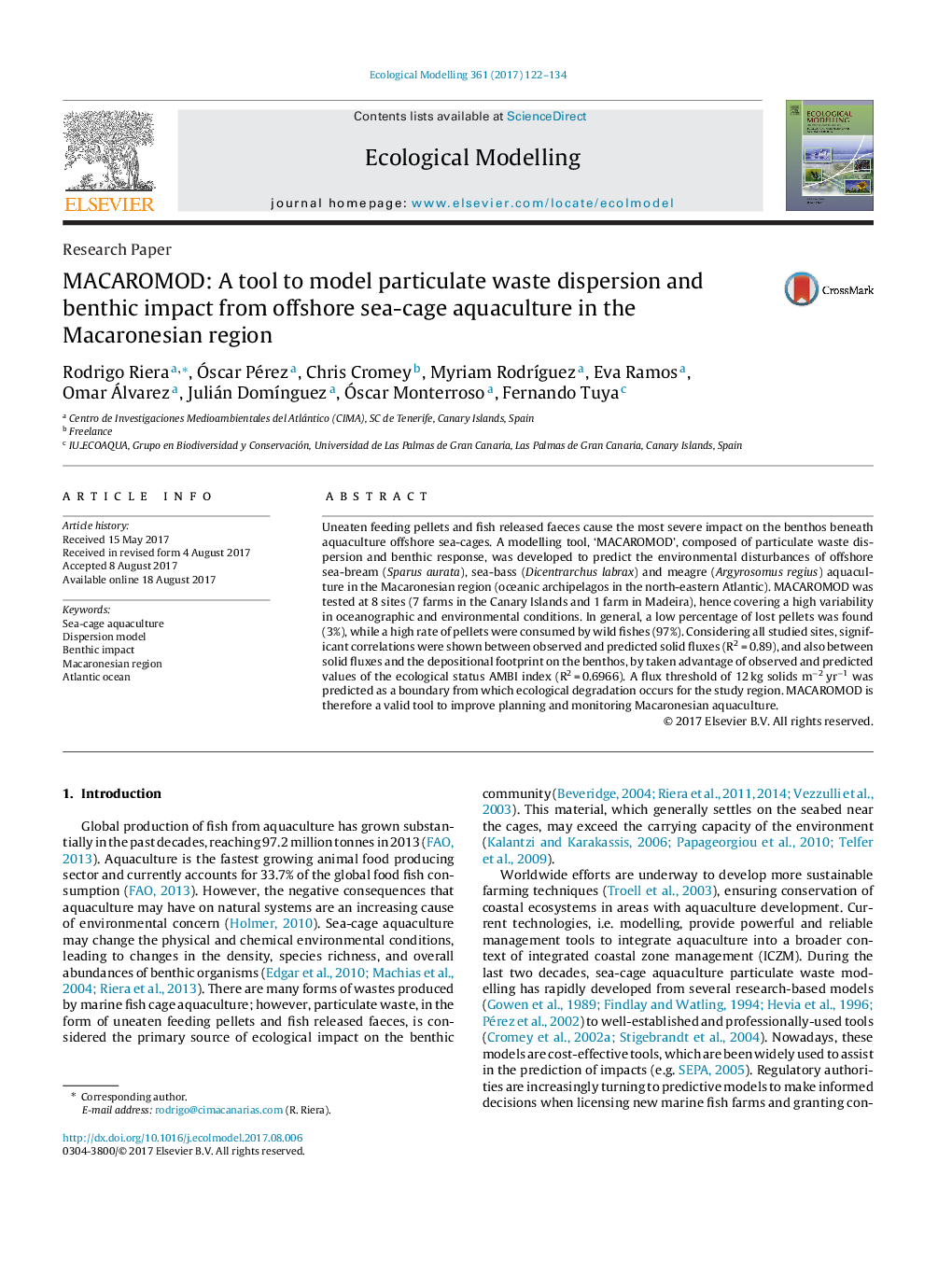| Article ID | Journal | Published Year | Pages | File Type |
|---|---|---|---|---|
| 5742000 | Ecological Modelling | 2017 | 13 Pages |
â¢The modelling tool was developed to predict disturbances of offshore aquaculture in Macaronesia.â¢This model was tested at 8 sites (7 in the Canaries and 1 in Madeira), covering a high variability of oceanographic and environmental conditions.â¢Low percentages of pellets were found (ca. 3%), with a high rate consumed by wild fish (97%).â¢High correlations observed between solid fluxes and between AMBI values. 12 kg solids m-2 yr-1 was predicted as a boundary of ecological degradation.â¢MACAROMOD is a valid tool to improve planning and monitoring Macaronesian aquaculture.
Uneaten feeding pellets and fish released faeces cause the most severe impact on the benthos beneath aquaculture offshore sea-cages. A modelling tool, 'MACAROMOD', composed of particulate waste dispersion and benthic response, was developed to predict the environmental disturbances of offshore sea-bream (Sparus aurata), sea-bass (Dicentrarchus labrax) and meagre (Argyrosomus regius) aquaculture in the Macaronesian region (oceanic archipelagos in the north-eastern Atlantic). MACAROMOD was tested at 8 sites (7 farms in the Canary Islands and 1 farm in Madeira), hence covering a high variability in oceanographic and environmental conditions. In general, a low percentage of lost pellets was found (3%), while a high rate of pellets were consumed by wild fishes (97%). Considering all studied sites, significant correlations were shown between observed and predicted solid fluxes (R2Â =Â 0.89), and also between solid fluxes and the depositional footprint on the benthos, by taken advantage of observed and predicted values of the ecological status AMBI index (R2Â =Â 0.6966). A flux threshold of 12Â kg solids mâ2Â yrâ1 was predicted as a boundary from which ecological degradation occurs for the study region. MACAROMOD is therefore a valid tool to improve planning and monitoring Macaronesian aquaculture.
